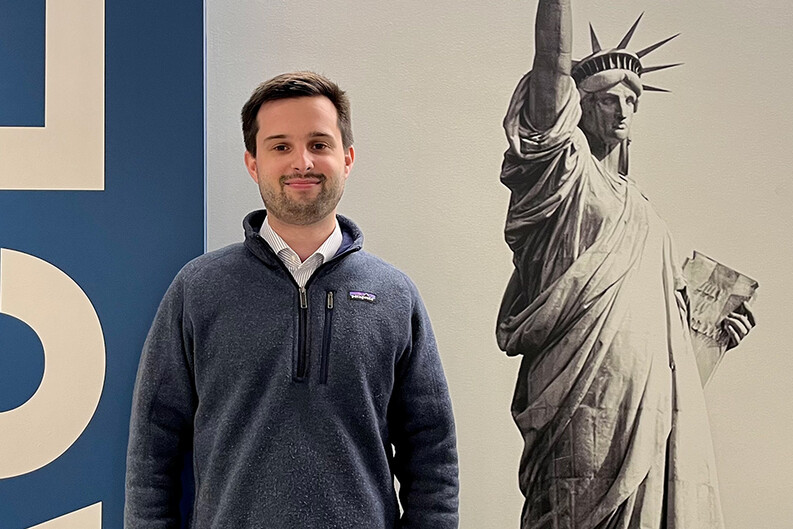Q&A: Liman Fellow James Mooney ’19 on Implementing Reform

James Mooney ’19 is a Liman Fellow4 at the ACLU of Illinois. He graduated from Davidson College in 2014. At Yale Law School, he participated in the Reentry Clinic and spent summers at the Orleans Public Defenders and the ACLU National Prison Project. Before his Liman Fellowship, Mooney clerked for Chief U.S. District Judge Lee H. Rosenthal of the U.S. District Court for the Southern District of Texas and Judge Thomas M. Hardiman of the U.S. Court of Appeals for the Third Circuit. Mooney has published essays on criminal legal reform and access to justice in Slate, the Yale Law Journal, and the Yale Law & Policy Review.
Tell us about your project at the ACLU of Illinois.
I am researching ways to challenge fines and fees imposed on young people. As the Chicago Tribune and ProPublica documented5, fines and fees harm youth and families who cannot pay. One ticket — for an offense such as vaping or “disorderly conduct” — can lead to hundreds of dollars in fines, hearing fees, and escalating late-payment penalties. Those payments can prevent families from putting food on the table, and collections actions can have lasting consequences. I am investigating these issues through legal research, outreach to groups that work with impacted people, and by watching hearings where fines and fees are imposed.
In addition, I am one of several lawyers representing organizations in a coalition that enforces the Chicago Police Consent Decree — a court order mandating systemic reform of the Chicago Police Department (CPD). The decree addresses CPD civil rights violations, including patterns of excessive force against people of color and people with disabilities. Most of my work for the coalition has been drafting feedback to CPD on policies it created to comply with the decree.
How did you first become interested in this work?
Before law school, I worked at a law firm that let me help out on a case against police officers who wrongfully raided a family’s home. That got me interested in police misconduct. During law school, a seminar with Professor Judith Resnik taught me about abusive fines and fees. The Liman Fellowship provided an ideal opportunity to work on these issues.
Have you learned anything that surprised you?
I have learned about the challenges of putting reform into practice. Changing a law or winning a court victory is just an early step.
For instance, years after the Illinois legislature banned schools from punishing students with fines, many schools simply refer student discipline to police officers, who ticket kids, leading to fines. Police have issued thousands of these tickets in recent years.
Meanwhile, the Chicago Police Consent Decree has hundreds of requirements concerning CPD policy development, officer training, and accountability mechanisms to address policy violations. Progress is slow. And there are major disagreements about whether CPD and the City of Chicago are meeting their obligations.
Implementing reform requires lawyers to work closely with impacted people, communications experts, policy advocates, and community organizers (groups that often overlap). For example, while coalition attorneys negotiate the details of CPD policies with client input, our clients organize Chicagoans to build support for police reform, including measures that go beyond the decree. Clients and impacted people also identify urgent issues that require policy fixes or legal action. When we go to court, the ACLU communications team helps educate the public to generate support for change outside the courtroom. All of these advocacy strategies and partnerships are needed to ensure that reforms become reality and improve people’s lives.
What has been a highlight of your Liman Fellowship so far?
I represented community organizers in a meeting between the coalition and senior CPD officials. The meeting was the coalition’s chance to advocate changes to important CPD policies. Also in attendance were observers from the Office of the Illinois Attorney General and the independent monitoring team overseeing compliance with the decree, so we had to make our case resonate with multiple audiences. The experience taught me to make succinct arguments so that the organizers, our clients, have room to share their vital perspectives.
Your fellowship is in its final months. What will you take with you when you leave?
I will take away deep appreciation for my ACLU of Illinois colleagues and our clients, and everything I learned from them. They helped me understand the role lawyers play in fighting injustice.


